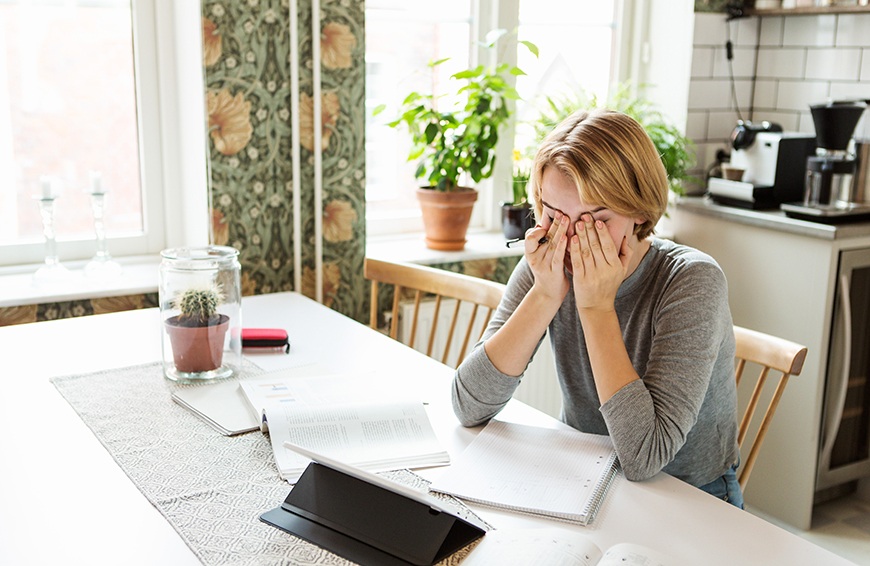9 Ways to Soothe Red, Itchy Eyes From Allergies, According to Experts
Because of how irritated my eyes get, it's not uncommon for me to have an I-just-got-done-crying look on the most pollen-heavy days of spring. Aka not a fun look for anyone. And according to docs, there's a simple explanation for why it affects me and other lucky allergy-ridden folks so much more than any other symptom on the list.
"The eyes are the hardest area to control seasonal allergy symptoms because they're a mucus membrane that's outwardly exposed. The pollen can easily contact the eyes, even more easily than getting into your nose or your lungs." says David Wertheim, MD, chair, division of allergy and immunology at ProHEALTH Care, a network of urgent-care clinics and health-care providers.
Airborne pollen directly contacts the conjunctiva (the clear, thin membrane that covers the inner surface of the eyelids), Dr. Wertheim says, and "causes localized release of allergic mediators, like histamine. This is the same process that causes a runny nose and sneezing."

{{post.sponsorText}}
It doesn't take long after contact for the problems to begin. Once those allergens hit your eyes, Richard Davidson, MD, an ophthalmologist with UCHealth, says they "cause the conjunctiva on the surface of the eye to become inflamed, which causes redness and itchiness. In addition, the eyelid skin can become inflamed as well." And since your eye area is more easily affected, you have to bring out the big guns to get some relief.
The next time red, itchy eyes are getting you down, try these expert-approved ways to combat your allergies for good.
Here are the best ways to soothe red, itchy eyes from seasonal allergies.

1. Control your environment
There's no way to control what's going on outside, but you can control what's going on inside. And that's the first step Dr. Wertheim recommends when fighting off allergens causing itchy eyes. "Keep your windows closed and put on your air conditioner if you're warm to minimize allergic contact," he says.
2. Pop some zinc
Zinc has plenty of cold-fighting benefits, and it can help ease your eye struggles as well. "Zinc supplements boost your immunity and help with allergic symptoms," says Adeeti Gupta, MD, founder of Walk In GYN Care in New York City.
3. Up your shower schedule
If you don't already shower every day, now's the time to start. According to Wertheim, doing so at night is crucial: "It takes the pollen off your body and hair," helping relieve your symptoms.
4. Limit your time outdoors
An excuse to stay inside and binge-watch Netflix all day? Done. "Limit your outdoor activities, if possible, at the height of the season," Wertheim says. "If you must do activities outdoors, the lowest pollen counts are before dawn or late in the afternoon."
5. Wear sunglasses
Whenever you do venture outside into the land of itchy eye-causing pollen, just make sure to bring your sunglasses along. "If you have eye symptoms, it's imperative to wear sunglasses to block the eyes," Wertheim says.
6. Brew some tea
Dr. Gupta says staying hydrated and drinking plenty of fluids is crucial in fighting off your symptoms. And one of the most beneficial ways to get your fix is by brewing a cup of tea. "Warm tea with ginger and honey is a long-used home remedy that works," she says. You can also add in some oil of oregano. "A few drops either directly or in tea are very helpful."
7. Use eye drops
If you don't already have eye drops on hand, grab some ASAP. "There are quite a few over-the-counter antihistamine eye drops to use," Wertheim says. "To maximize comfort, I recommend that they're refrigerated: they just feel better."
8. Use a cool compress
Nothing provides better in-the-moment relief than giving yourself a relaxing spa-like treatment at home. "Sometimes the best treatment is a cool compress or even ice on the eyelids," Dr. Davidson says. Plus, what better time to catch up on your favorite podcasts?
9. Take some meds
When nothing else will do the trick, allergy meds can provide some relief. "Taking over-the-counter antihistamines will help itching. Even over-the-counter steroid nose sprays can help, as there's some effect of the medication going up the tear duct," Wertheim says. "If these environmental controls and over-the-counter medication don't work well, that means it's time to see your allergist to help you control symptoms as best as possible."
If you're thinking about trying bee pollen for your allergies, here's what one doc thinks you should know. Also, make sure you're well aware of these three habits that could be making your allergies worse.
Loading More Posts...